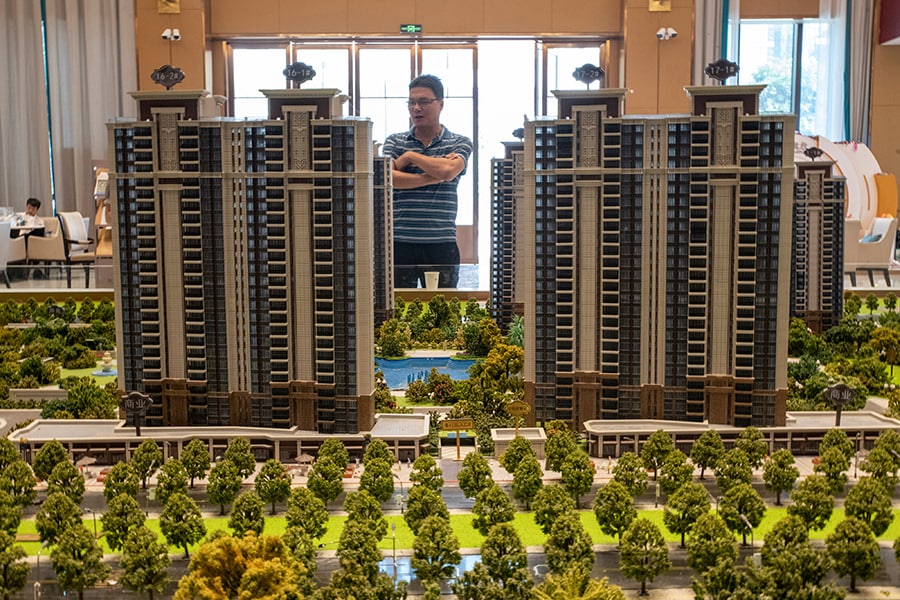
In China, homebuyers who went all in say they want out
Nearly three-quarters of household wealth in China is now tied to property and the loss of confidence in the market could spill over to lower sales of cars and appliances, further hurting the economy
 A visitor in the sales office for Evergrande Mansions in Dongguan, China on Sept. 28, 2021. China Evergrande Group’s financial troubles, and the government policies that helped push it to the brink of collapse, have threatened an important economic driver: home sales.
A visitor in the sales office for Evergrande Mansions in Dongguan, China on Sept. 28, 2021. China Evergrande Group’s financial troubles, and the government policies that helped push it to the brink of collapse, have threatened an important economic driver: home sales.
Image: Gilles Sabrié/The New York Times
China is trying to cool its costly and dangerously debt-ridden housing market, where high prices and go-go levels of borrowing and spending are increasingly seen as a national threat.
But as the troubles of a major property developer and its $300 billion mountain of debt drive a government effort to contain the peril, Beijing risks hurting a major driver of its crucial economic growth engine: homebuyers like He Qiang.
He was so optimistic about property in China that he bought an apartment from that property developer, China Evergrande Group, then became a real estate agent himself, selling the company’s apartments to hundreds of other families.
“It was the peak of Evergrande’s glory,” He said.
He is much more pessimistic these days. He, who is from the southern city of Yueyang, has yet to move into his apartment because Evergrande has stopped construction. So many other people are nervous about buying homes, he said, that he’s considering going back to selling cars.
©2019 New York Times News Service




